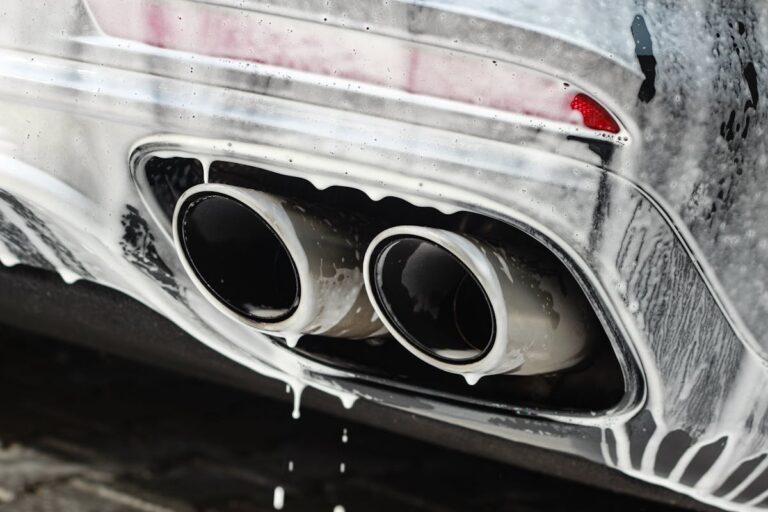Is Ecu Tuning Legal in California
ECU tuning is legal in California if it complies with CARB regulations. Modifications must not increase emissions beyond state limits. CARB-approved tuning options exist, but non-compliant tuning can result in smog check failures, fines, and registration denial. Off-road or racing vehicles may be exempt but require documentation.
Understanding ECU Tuning
ECU tuning, a term often thrown around in automotive circles, is a practice that involves modifying the software running on a vehicle’s Engine Control Unit (ECU). This process is often employed by car enthusiasts and professionals alike to optimize the performance of a vehicle. The aim is to tweak the ECU settings to enhance engine performance, increase fuel efficiency, and potentially add more power.
Advanced tuning technologies are used to access the ECU’s program parameters. These technologies enable tuners to adjust various aspects of the vehicle’s performance, including fuel-to-air ratio, ignition timing, and turbocharging pressure. This fine-tuning can result in significant performance enhancement and a more responsive vehicle.
However, it is vital to understand that ECU tuning should be carried out responsibly. While it can lead to impressive enhancements, it can potentially void a vehicle’s warranty, and if not done correctly, could even lead to mechanical issues. In addition, the legality of ECU tuning varies depending on the location, specifically in areas with stringent emission standards, like California. As a result, it is important for vehicle owners to be aware of the regulations in their jurisdictions before proceeding with ECU tuning.
California’s Emission Standards
Adhering to California’s emission standards is a crucial responsibility for vehicle owners residing within the state’s jurisdiction. The state’s emission regulations are among the most stringent in the United States, reflecting California’s commitment to mitigating environmental harm caused by vehicular pollutants.
These regulations cover a wide range of pollutants, including carbon monoxide, nitrogen oxides and particulate matter, all of which can have adverse effects on air quality, public health, and the environment. The standards apply to all vehicles, from passenger cars and light trucks to heavier commercial vehicles, and are enforced through mandatory biennial smog checks.
Tuning compliance is an important aspect of meeting these standards. Vehicle tuning, including ECU tuning, must not result in emissions that exceed the permissible limits. Vehicle owners considering ECU tuning must verify that the modifications will not cause their vehicles to fail the smog check.
Legal Implications of ECU Tuning
Moving from compliance to implications, it becomes imperative to explore the legal ramifications associated with ECU tuning in California. ECU, or Engine Control Unit, tuning is a method used primarily for performance enhancements in vehicles. Although it can vastly improve the functionality of a vehicle, there are strict regulations in place, particularly in California.
- Vehicle Code Violations: ECU tuning may violate California Vehicle Code Section 27156, which prohibits modifications that increase motor vehicle emissions. Legal loopholes may exist, but they are few and far between.
- Consumer Protection Laws: Misrepresenting the legality of ECU tuning could fall under unfair business practices, violating California’s Unfair Competition Law (UCL). It’s unlawful to engage in any business practice that is fraudulent, unfair, or illegal.
- Warranty Issues: Vehicle warranties may be voided if manufacturers can prove that ECU tuning caused damage to the vehicle. This is governed under the Magnuson-Moss Warranty Act.
These are just a few of the potential legal implications that can arise from ECU tuning. It’s important to be fully informed and to evaluate these potential impacts before making any modifications to your vehicle because ECU tuning can violate multiple laws, leading to fines, failed inspections, and even criminal charges for repeat offenses.
Common Legal Risks:
| Issue | Potential Consequence |
| Failing Smog Check | Registration denial |
| CARB Non-Compliance | Fines up to $37,500 per violation |
| Voiding Manufacturer Warranty | Repairs at owner’s expense |
| Misleading ECU Claims | Violation of Unfair Competition Law |
Penalties for Non-Compliance
In the domain of vehicle modifications, non-compliance with regulations can lead to severe consequences. California’s tuning regulations are stringent, and failure to adhere to these compliance requirements can result in various penalties.
The most immediate consequence is the imposition of heavy fines. The California Bureau of Automotive Repair (BAR) has the authority to fine vehicle owners who violate tuning regulations. These fines can vary depending on the nature of the non-compliance but can reach upwards into thousands of dollars.
Additionally, non-compliant vehicles can be denied registration. The BAR can refuse to register a vehicle that has not passed its Smog Check, a requirement that can be impacted by certain ECU tuning modifications. Without registration, the vehicle is fundamentally illegal to drive on public roads. If you’ve been involved in a car accident, understanding what to expect afterward can help you navigate the legal and insurance processes.
Repeated non-compliance can even lead to criminal charges. The California Vehicle Code sets out penalties for repeat offenders, which can include imprisonment. Although this is a rare outcome, it underscores the seriousness with which California treats compliance in vehicle modifications. After an accident, knowing how to get compensated for damages and losses can be vital, just like ensuring your car modifications meet legal standards.

ECU Tuning and Vehicle Warranty
ECU tuning can have significant implications for a vehicle’s warranty. To fully understand this, we must consider the standpoint of the manufacturers regarding ECU modifications and identify the factors that could potentially lead to the voiding of a warranty. This section will provide an informed discussion on these important issues.
Impacts on Vehicle Warranty
The world of automotive enhancements often collides with the rigid stipulations of vehicle warranties. ECU tuning, as a popular form of vehicle modification, falls within this collision sphere, particularly in relation to warranty coverage.
ECU tuning modifications can have significant impacts on vehicle warranties. These impacts can be summarized in three broad categories:
- Voiding of Warranty: Some manufacturers may completely void the vehicle’s warranty if they discover ECU tuning modifications. This is because such modifications can potentially harm the vehicle’s performance and longevity, which increases the manufacturer’s liability.
- Partial Warranty Coverage: In some cases, only the components affected by the ECU tuning modifications might lose their warranty coverage. The unaffected parts of the vehicle may still be covered under the original warranty.
- Conditional Coverage: Certain manufacturers might offer conditional coverage, where the warranty remains valid as long as the ECU tuning modifications do not cause any damage to the vehicle.
Manufacturer’s Stance on ECU
Understanding the manufacturer’s stance on ECU tuning and its impact on vehicle warranties is pivotal for car owners considering such modifications. Manufacturers typically frame their policies around legal guidelines, safety considerations, and the potential for decreased vehicle longevity.
In general, manufacturers caution against ECU tuning, as they design their engines and ECUs to operate ideally within specific parameters. These parameters are determined by a combination of laboratory testing and real-world usage, and are encoded in the ECU’s firmware. Tuning alters these encoded parameters, leading manufacturers to question whether the vehicle will continue to perform safely and reliably.
Moreover, manufacturer policies often state that any modification not approved by them, including ECU tuning, may void the vehicle’s warranty. This is largely due to the fact that tuning can push the vehicle beyond its designed capabilities, potentially leading to premature wear, damage, or even catastrophic failure.
While tuning guidelines may vary from one manufacturer to another, the common thread is caution. Manufacturers tend to discourage modifications that might compromise vehicle safety, reliability, and longevity, and this includes ECU tuning. As a result, car owners must carefully weigh the potential benefits of tuning against these considerations.
Warranty Voiding Factors
In many cases, the act of ECU tuning can indeed pose significant risk to a vehicle’s warranty. This is primarily due to the potential damage that tuning can cause to the vehicle’s engine and other components, which are usually covered under warranty.
However, the extent to which ECU tuning impacts warranty coverage depends on a few factors:
- The specific terms of the warranty: Some warranties specifically state that any modifications to the vehicle, including ECU tuning, will void the warranty. Others may be more lenient, allowing for certain modifications as long as they do not cause damage.
- The nature of the damage: If damage occurs and it can be proven that it was directly caused by the ECU tuning, then it is highly likely the warranty will be voided.
- Dealership policies: Dealerships often have their own policies regarding modifications and how they impact warranty coverage. Some may be more lenient than others, so it’s always best to discuss any planned modifications with the dealership first.
Environmentally Friendly ECU Modifications
Understanding the intersection of ECU tuning and environmental considerations requires an exploration of California’s emission standards, the concept of green ECU tuning practices, and the potential environmental impact of such modifications. As ECU tuning becomes more prevalent, examining its potential to align with environmental sustainability becomes a necessity. These factors offer a thorough lens through which to assess the legality and implications of ECU tuning in the context of California’s rigorous environmental mandates.
Californias Emission Standards
While California is known for its stringent emission standards, there are ways to modify your ECU without breaking the law. Adhering to these standards is essential to both preserving the environment and avoiding legal complications. One must understand the details of California’s emission regulations to guarantee any ECU tuning falls within the legal framework.
- The California Air Resources Board (CARB) imposes strict standards on vehicle emissions. They aim to reduce pollution and greenhouse gas emissions. Consequently, any ECU modifications must not violate these standards.
- The state provides tuning exemptions for certain vehicles, such as those used exclusively for off-road or racing purposes. However, these exemptions are limited and specific, requiring thorough documentation and justification.
- Some aftermarket parts are CARB-approved, meaning they’ve been tested and proven not to increase emissions beyond allowable limits. Using these parts for ECU tuning can help vehicle owners stay within emission regulations.
Green ECU Tuning Practices
Adapting your vehicle with environmentally-friendly ECU modifications, often referred to as “green tuning,” is a viable option for those who wish to enhance performance while also meeting emission standards. The concept revolves around optimizing the vehicle’s engine control unit (ECU) settings to improve fuel efficiency and reduce harmful emissions.
The first step to green tuning is eco-friendly remapping, a process that involves altering the software within the ECU to adjust the engine’s functionality. This method focuses on achieving sustainable performance by balancing the power output against fuel consumption. As a result, it decreases the amount of harmful pollutants released into the atmosphere, aligning the vehicle with California’s stringent emission standards.
While traditional ECU tuning might prioritize power and speed, green tuning emphasizes efficiency and sustainability. By embracing this approach, vehicle owners can contribute to environmental conservation efforts without compromising their vehicle’s performance.
However, it’s essential to engage a professional tuner experienced in green ECU modifications to guarantee that the remapping process is done correctly. When executed efficiently, green tuning can lead to significant fuel savings and a reduced carbon footprint, making it an ideal solution for eco-conscious drivers in California.
Potential Environmental Impact
The potential environmental impact of ECU modifications, particularly when they are eco-friendly, cannot be overstated. These modifications can greatly alter a vehicle’s emissions, influencing its compliance with environmental regulations and its performance during emissions testing.
- Improved Fuel Efficiency: Environmentally friendly ECU tuning can enhance fuel efficiency, reducing a vehicle’s overall carbon footprint. An engine running at ideal efficiency will use less fuel and produce fewer emissions.
- Reduced Harmful Emissions: Properly tuned ECUs can lower the production of harmful emissions such as carbon monoxide (CO), nitrogen oxides (NOx), and particulate matter. These reductions can help meet stringent environmental regulations and pass emissions testing.
- Extended Engine Life: Eco-friendly ECU modifications can prolong engine life by ensuring ideal performance. This reduces waste associated with engine replacements and repairs.
However, it’s important to remember that while these modifications can potentially yield positive environmental impacts, they must be handled correctly. Improper ECU modifications can lead to increased emissions and other environmental harms. Consequently, it’s advisable to seek professional assistance when considering ECU tuning for environmental benefits.
Legal Requirements for ECU Tuning in California
ECU tuning in California must comply with strict emission regulations set by the California Air Resources Board (CARB). Any modification affecting engine performance must have a CARB Executive Order (EO) number, proving it meets emissions standards. Illegal tuning can result in failed smog checks, fines, and denied vehicle registration. However, CARB-approved tuning options exist for street-legal use, while non-compliant modifications are limited to off-road or racing vehicles. To ensure compliance, always verify that ECU tuning software and hardware are certified and legal for road use in California.
A significant number of car enthusiasts in California are drawn to Engine Control Unit (ECU) tuning for the potential performance enhancements it can offer. However, steering through the legality of such modifications can be complex due to strict vehicle emissions standards in the state.
ECU tuning technologies can optimize engine performance, but they also frequently affect emissions output. This can lead to non-compliance with California’s stringent environmental regulations. As a result, it’s essential to understand which aftermarket modifications are permissible under state law.
The California Air Resources Board (CARB) oversees the certification of aftermarket parts. Any part that could impact emissions must have an Executive Order (EO) number, indicating that it has been tested and approved by CARB. This includes ECU tuning technologies.
If a modification does not have an EO number, it’s likely illegal for road use in California. However, it may still be permissible for off-road or racing applications. To guarantee compliance, car enthusiasts should thoroughly research any potential modifications and consult with professionals in the field. Ultimately, the legality of ECU tuning in California requires careful steering through the state’s intricate regulatory landscape.
Frequently Asked Questions
Only if it has a CARB Executive Order (EO) number. Otherwise, it is illegal for road use.
Yes. Fines can reach up to $37,500 per violation for non-compliant modifications.
Yes. Companies like VF-Engineering, EuroCode Tuning, and GIAC offer CARB-compliant tuning.
ECU tuning immediately enhances a car’s performance by providing significant power gains and improving throttle response. This process optimizes the engine’s efficiency, resulting in a more responsive and faster vehicle.
Yes, ECU tuning can improve fuel efficiency. By optimizing the engine’s fuel-air mixture and ignition timing, this process can lead to significant fuel savings, demonstrating one of the many tuning benefits.
Yes, California hosts several reputable ECU tuning services. Providers such as VF-Engineering, EuroCode Tuning, and GIAC are renowned for their reliable and efficient services in enhancing vehicle performance through ECU tuning.
ECU tuning can indeed affect insurance rates. Insurers may view modifications as increasing risk, leading to higher premiums. Understanding both insurance implications and tuning regulations is essential before undertaking such modifications to a vehicle.






